Members
Kiichi FUJIWARA
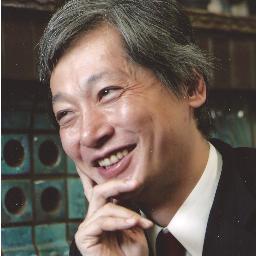
Kiichi Fujiwara is professor of International Politics and Director of the Policy Alternatives Research Institute at the University of Tokyo. A graduate of the University of Tokyo, Professor Fujiwara studied as a Fulbright student at Yale University. He first joined the faculty at Chiba University, moved to Institute of Social Science, and has taught at the Graduate Schools for Law and Politics since 1999. Prof. Fujiwara’s works include Remembering the War (2001); A Democratic Empire (2002); Is There a Just War? (2003); Peace for Realists (winner of the Ishibashi Tanzan award, 2005), International Politics (2007), and Conditions of War, (2013). Professor Fujiwara is a regular commentator on international affairs who writes a monthly column for the Asahi. He also writes a weekly film review for the Mainichi.
Keisuke IIDA
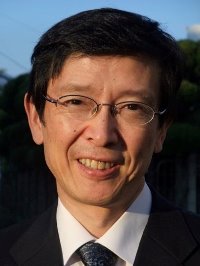
Keisuke IIDA is Professor in the Graduate Schools for Law and Politics at the University of Tokyo. He holds a Ph.D. from Harvard University and has formerly taught at Princeton University and Aoyama Gakuin University. His current research interests include the politics of regional integration in East Asia, the politics of trade, including energy trade, and the political economy of financial and currency crises.
Hideaki SHIROYAMA
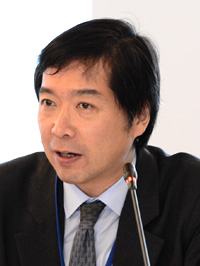
Hideaki SHIROYAMA is a Professor of Public Administration at the Policy Alternatives Research Institute (the former Director), the Graduate School of Public Policy (the former Dean), and the Graduate Schools for Law and Politics, The University of Tokyo. His research focuses on international administration, science, technology and public policy, and public policy process. His publications include Transformation of Political Space and Policy Innovation 1 Political Theory of Policy Innovation (University of Tokyo Press, 2008), The Structure of International Aid Administration (University of Tokyo Press, 2007), Governance of Science and Technology (Toshindo, 2007), "The Harmonization of Automobile Environmental Standards between Japan, the United States and Europe" in Pacific Review vol. 20-3, "Administrative Reorganization and Public Sector Reform in Japan" in The Public Sector in Transition: East Asia and the European Union Compared (Nomos, 2007), "Technology Innovation and Diffusion for Environmental Protection," in Energy Market Restructuring and the Environment (The University Press of America, 2002). He also served as the Chairman of the Planning Committee of New Initiatives for Humanities and Social Sciences Program at the Japan Society for the Promotion of Science from 2003-2008, as President of the PI forum, an NPO for consensus building in Japan from 2006-2008 and as a member of various government advisory councils on higher education, nuclear safety, food safety, fire protection, scenarios for climate mitigation, and industrial policy.
Akio TAKAHARA
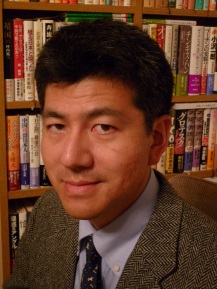
Akio TAKAHARA is professor of Contemporary Chinese Politics at the Graduate Schools for Law and Politics, the University of Tokyo. He received his DPhil in 1988 from the University of Sussex, and later spent several years as Visiting Scholar at the Consulate-General of Japan in Hong Kong (1989-91) and the Japanese Embassy in Beijing (1996-98), and at the Fairbank Center for East Asian Research, Harvard University (2005-06). Before joining the University of Tokyo, he taught at J. F. Oberlin University (1991-95) and Rikkyo University (1995-2005). He also served as a Member of the Governing Body of the Institute of Development Studies, UK (1999-2003), and President of the Japan Association for Asian Studies (2009-11). He currently serves as the Secretary General of the New Japan-China Friendship 21st Century Committee, senior researcher of the Tokyo Foundation, and adjunct fellow of the Japan Institute of International Affairs.
Masahiro KOHARA
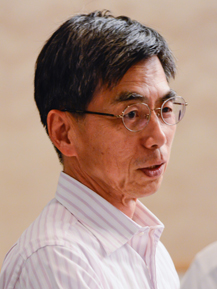
Dr. Masahiro Kohara is currently Professor, Graduate Schools for Law and Politics, University of Tokyo. Before he assumed the current post in September, 2015, he had served as a career diplomat in Japan’s Ministry of Foreign Affairs for 35 years.
He served as Counselor (1998) of the Permanent Mission of Japan to the United Nations, Director of the Regional Policy Division of the Asian Bureau (1999), Director of Grant Aid Division of the Economic Cooperation Bureau (2001), Deputy Director General of the Asian and Oceanian Affairs Bureau (2007), Consul-General of Japan in Sydney (2010) and Consul-General of Japan in Shanghai (2013).
Professor Kohara graduated from the University of Tokyo, earned his MA in Asian Studies from UC Berkeley, and received his Ph.D. degree in International Relations from Ritsumeikan University.
His works include East Asian Community (Nihon Keizai Shimbun,Inc., Tokyo, 2005), National Interest and Diplomacy (Nihon Keizai Shimbun,Inc., Tokyo, 2007), Japan in the midst of Two Superpowers (Jiji Press, 2012), China's Dilemma (Discover21, 2012).
Chiyuki AOI

Chiyuki Aoi, Ph.D, is Professor of International Security at the Graduate School of Public Policy, the University of Tokyo. Aoi was educated at Sophia University (BA), the Massachusetts Institute of Technology (MS), and Columbia University (PhD). From 2008 to 2009, she was Visiting Research Fellow at the Department of War Studies, King’s College London.
Previous to her current position, she was professor at Aoyama Gakuin University (2004-16), Academic Programme Officer at the Peace and Governance Programme of the United Nations University (2002-4) and also taught various professional courses including at the Joint Staff College, Japan Ministry of Defence.
Her main research interest is counterinsurgency history and theory (British and American), use of force in the post-Cold War era, the transformation of warfare, especially with regard to technology and information/strategic communications, and Japanese national defence and strategy.
She has published books and journal articles in both English and Japanese, including in Defence Strategic Communications, Pacific Review, RUSI Journal, Journal of International Peacekeeping, International Affairs (in Japanese) and Journal of Military History (in Japanese). She directed the compilation of three Japanese-government-commissioned research reports and conducted research under contract for the Netherlands Defence Academy on Dutch and Japanese military operations in Iraq.
In August 2018, she was elected a member of the Shinzo Abe administration Council on Security and Defense Capabilities.
Yee Kuang HENG
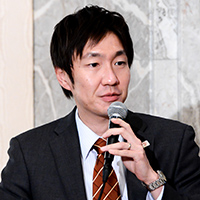
Yee Kuang Heng is Professor at the Graduate School of Public Policy, University of Tokyo. Before joining UTokyo, he was Associate Professor at the Lee Kuan Yew School of Public Policy, National University of Singapore, where he also served as Assistant Dean for Research. Heng spent many years studying and then lecturing in the United Kingdom and Ireland. He graduated from the London School of Economics and Political Science with a B.Sc. (First Class Honours) and then PhD in International Relations funded by a British Government research scholarship. After completing his PhD, he held faculty positions lecturing at Trinity College Dublin, Ireland (2004-2007) and the University of St Andrews, United Kingdom (2007-2011). His work on Japan’s soft power includes peer-reviewed articles in journals such as The Pacific Review; International Relations of the Asia-Pacific; and Journal of Strategic Studies. Heng also conducts research on the transformation of warfare, globalization of risk and security studies. His fourth and most recent book is‘Managing Global Risks in the Urban Age: Singapore and the making of a Global City’ (Routledge, 2015).
Kazuyo HANAI
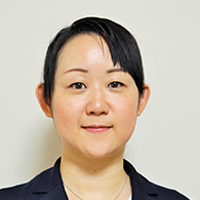
Kazuyo Hanai is an Assistant Professor at the Policy Alternatives Research Institute (PARI) at the University of Tokyo. She graduated from the University of Tsukuba (B.A. in History), and the Graduate School of Education (M.A. in Education). After serving as a teacher at Seijo Gakuen high school, she graduated from the Graduate School of Public Policy (MPP in International Public Policy), and received her Ph.D from the Graduate School for Frontier Sciences of the University of Tokyo (Ph.D. in International Cooperation Studies). Prior to joining PARI, she was a Project Research Associate at the Graduate School of Public Policy (GraSPP) of the University of Tokyo. She joined PARI in April, 2018. Her research interest is in the relations between the conflict minerals issue in the DR Congo and responsibility of Japanese consumers. Also she works on peace education.
Lully MIURA
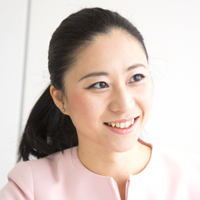
Lully Miura, is an Assistant Professor at the Policy Alternatives Research Institute (PARI) of the University of Tokyo. She graduated from the University of Tokyo and the Graduate School of Public Policy (GraSPP), and earned her PhD from the Graduate Schools for Law and Politics of the University of Tokyo. Her work has primarily been in International Politics and Comparative Politics covering both theoretical and policy research focusing on broadly defined security issues. Miura is an author of Civilian’s War: On the Origins of Aggressive Democracies (Civilian-no Senso) Iwanami, 2012, Understanding Contemporary Japanese Politics and Diplomacy (Nihon-ni Zetsubou-shiteiru hito-no-tameno Seiji Nyumon) Bungei Shunju Publishers 2015, New World Order in Trump Era (Trump Jidai no Shin-Sekai-Chitsujo), Ushio, 2016, Dilemma of the State (Kokka-no-Mujun), with Mashiko Komura, Shincho-sya, 2016, and Realism in Nation-State (Kokumin-Kokka no Realism), with Naoki Inose, Kadokawa, 2017. Her new book, Peace in the 21st Century, Shincho-sya, will be published this year. She is a member of the Book Review Committee at Yomiuri Newspaper, and a member of the advisory panel for Kyodo News.
Roberto ORSI

Roberto ORSI is currently Project Lecturer at the Security Studies Unit of the Policy Alternative Research Institute, and at the Graduate School of Public Policy, University of Tokyo. He holds a PhD in International Relations from the London School of Economics and Political Science, where he authored a dissertation about the concept of order in international politics. His main research interests are theory of international politics, critical theory, history of political concepts (especially European conservative thought) and East Asia regional security.
Nazia HUSSAIN
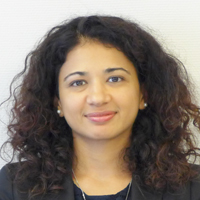
Nazia HUSSAIN is a Project Assistant Professor at the Policy Alternatives Research Institute (PARI) of the University of Tokyo. She earned her PhD in Public Policy from the Schar School of Policy and Government, George Mason University. She has been the recipient of Japan Society for the Promotion of Science postdoctoral fellowship at the Center for Policy Research, United Nations University and Fulbright scholarship for an MA in International Relations from Boston University. Her work focuses on intersections of political violence, informality, organized crime and terrorism within the context of cities in developing countries and how their dynamics are contributing to local and regional processes with relevance for global concerns. She has contributed book chapters and papers on organized crime and terrorism, violence and informality in cities as well as policy monographs for Oxfam America and World Bank.
